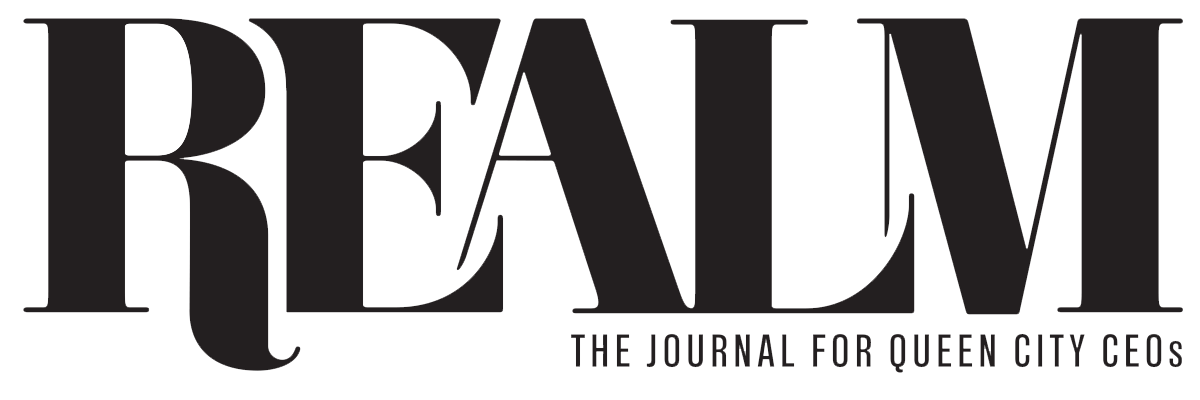Immigration has been a hot-button political issue for years, but the heat surrounding the topic obscures the fact that this nation and its individual communities are reliant on foreign-born people for growth, for healthy economies, for jobs, and for culture. Cincinnati, for example, reversed decades of population decline in the last U.S. Census in 2020, growing 4.2 percent—and nearly all of the growth came from immigrants moving into the city. According to New American Economy, a bipartisan research organization, Cincinnati’s suburbs and rural communities also depend on immigrants as the Baby Boomer workforce retires and economic growth demands additional workers.
“It’s no secret that immigrants are driving population growth,” says Bryan Wright, executive director of Cincinnati Compass, which works to advance the inclusion of immigrants and refugees across the region.
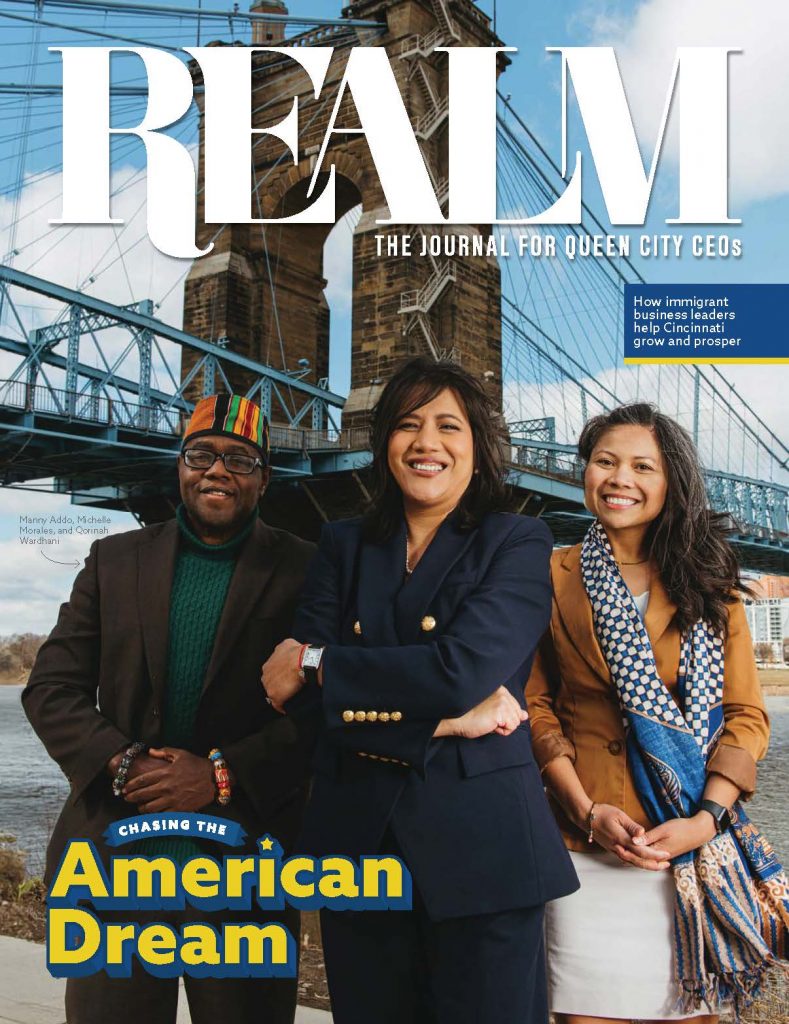
Immigrants here are more likely to be of prime working age (between 25 and 54, which means they have slightly higher median household incomes than American-born residents) and are more likely to be married and employed, according the Cincinnati USA Regional Chamber’s Center for Research and Data.
Although international migration is critical to Cincinnati’s regional growth, the region still lags faster-growing peer cities such as Nashville and Charlotte in immigrant population, according to the center’s research. “To be a choice destination for talent and innovation, we have to attract global talent,” Wright says. “If people come here, they want to see themselves reflected in the cultural offerings.”
Foreign-born residents promote vibrant communities, jump-start local economies, pay taxes, create jobs, start businesses, and support key industries. In interviews, immigrants almost invariably describe their pursuit of what’s known as the American Dream: seeking opportunity, building a better life for their families, and contributing to their communities.
With that in mind, here are the stories of a half-dozen successful business leaders who came to the region from other countries.
[Top photo from left: Qorinah Wardhani, Manny Addo, and Michelle Morales photographed on March 6, 2025. Photograph by Jon Medina.]
Fans of the Asian Food Fest, the annual celebration of Asian culture and food that drew more than 100,000 people last year, can thank Qorinah Wardhani and her friends. When she was in high school, a visit to the Columbus Asian Festival stayed with her as, years later at a young professionals happy hour in Cincinnati, the group discussed ways to network and create a welcoming scene for Asian Americans here. She and her peers started the Asian Food Fest in 2012 as a small event, “basically a picnic,” she says, with a handful of vendors at the Kolping Center in Springfield Township.
It’s since blossomed into a two-day festival downtown where attendees can experience Asian culture through cuisine, dance, music, special performances, and contests. Dozens of vendors offer Asian cuisines, and an entertainment lineup features a variety of Asian ethnicities, cultures, and genres, including rock bands, traditional dances, drummers, students, and opera singers.
“It was kind of a bunch of friends to now we’re an organized team and a registered not-for-profit,” says Wardhani. Festival sponsors include some of Cincinnati’s biggest companies, including Kroger Co., Procter & Gamble, and Fifth Third Bank.
Wardhani came to the U.S. at age 11 from the island of Sumatra in Indonesia, a nation composed of thousands of islands and 275 million peo ple. Her father, a university professor, was studying for a doctorate degree in the U.S. and had planned to return to his university role in Indonesia, but he and his wife saw the prospect of a better life in the U.S. “My parents decided that even if he finished schooling and we went back to Indonesia, our options and opportunities were still limited,” says Wardhani.
Her father quit his Indonesian post, and Wardhani, her mother, and two younger siblings joined him in Starkville, Mississippi, home of Mississippi State University. Only two other Indonesian families lived there, and they followed one to Lexington, where Wardhani attended the University of Kentucky.
Her father’s Indonesian university credentials didn’t transfer to the U.S., so her parents took restaurant jobs to earn money. The restaurant owners eventually sponsored their permanent residency in the U.S. Wardhani graduated with a degree in accounting and economics and landed a job in the Cincinnati office of Deloitte. She’s worked for Fifth Third in its enterprise data unit since 2021.
Coming to the U.S. as a preteen and leaving her friends behind was a culture shock, Wardhani says. “I didn’t understand U.S. culture,” she says. “I didn’t even understand English.” She studied English as a second language in school and three years later was speaking the language.
The growth of the Asian Food Fest from an idea tossed around at a happy hour to one of Cincinnati’s largest festivals reflects well on the region, she says. “It signals that we have a healthy community. It’s created more space for people to live and stay here. People are wanting to raise families here and stay after they come for school because they see an investment in the community and the people in the community.”
The West African nation of Ghana is one of the world’s poorest countries. To Manny Addo, arriving in New York City from there about 25 years ago, even homeless Americans looked relatively well off. “In Ghana, among my friends, we have a saying that goes, New York is one mile away from heaven. We thought the streets were paved with gold.”
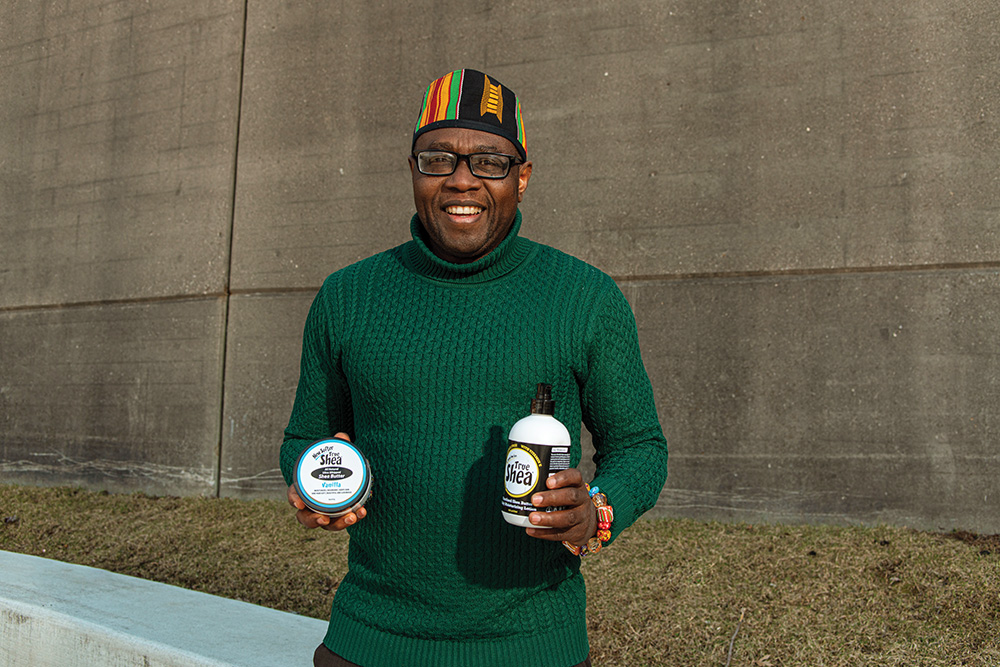
With that image in mind, the first time he was panhandled in New York, he rushed to tell his cousins. “Guys, there’s a white guy under a tree who asked me for a quarter,” he recalls telling them in disbelief. His cousins, who had been in the U.S. for a while, were amused but explained that the man was likely homeless. “It was the first time I saw a homeless person with gym shoes on,” Addo says. “He had a pair of jeans and a dog! So that was my first cultural shock in this country.”
Addo had known poverty himself, arriving in the U.S. with only a few hundred dollars to his name. He’d been accepted to the MBA program at Xavier University and made it to Cincinnati by bus, arriving at 3 a.m. without knowing anyone. He found a hotel, but it was too expensive for him, so he located a space in a rooming house, sleeping on the floor and leaving early in the mornings to dodge a landlord looking for rent. He earned his master’s degree and went to work as a financial analyst for GE, Fifth Third Bank, JP Morgan, and others.
One day, while talking to a fellow Ghanaian, the friend offered him a sample of one of Ghana’s main exports, shea butter. “I went online and Googled: What is the market size of shea butter in the United States? And that’s when the light went on in my head.”
Addo founded Natural Shea Care in his basement in 2016, sourcing the product from Ghana. He spent nights, weekends, holidays, and vacations whipping and packaging shea butter, launching a word-of-mouth marketing campaign and selling the product at churches, festivals, flea markets, and picnics in the Cincinnati and Colum bus regions.
His main product, True Shea, is now available in Kroger stores, Target, Amazon, and later this year in Safeway stores. The product will be available in 3,000 stores by the end of this year, he says.
Addo gives back to his native country. After high school, as part of a national service program, he was sent to one of the most remote villages in the country to teach. Some of the children walked miles each day to fetch drinking water. He made a promise to help the village if he ever made it to the U.S. and has since financed a clean drinking water well there and recently returned to help build a second one.
“Having a good immigrant environment here is just good for everybody,” says Addo.
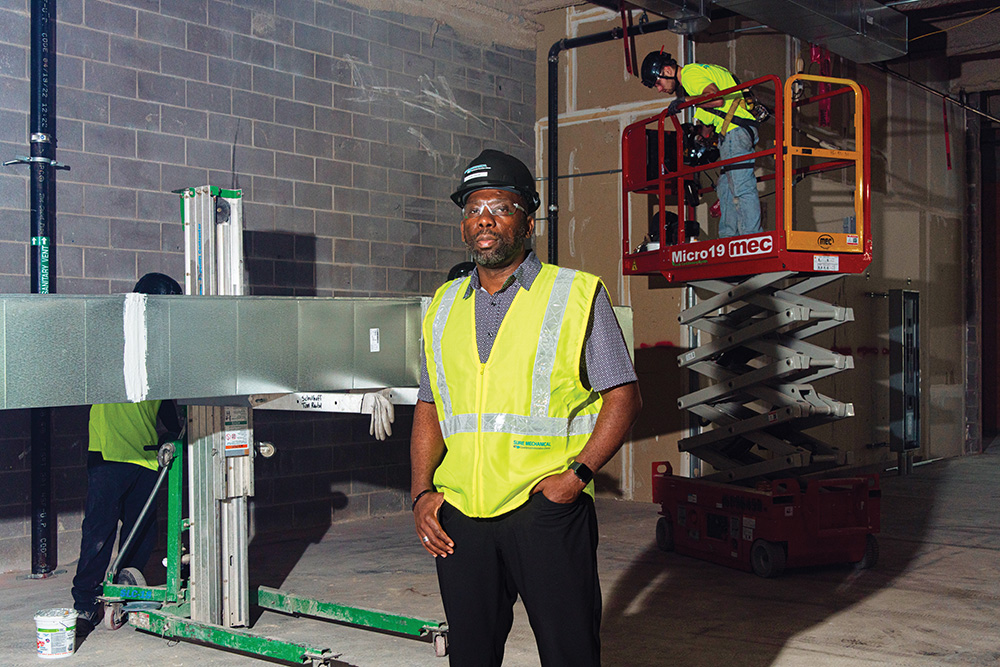
A historic storm struck the Ohio Valley in December 2004, lasting more than 24 hours and dropping 20 inches or more of snow around the region. Chukwuma “Chuma” Ekwueme had just arrived in Cincinnati from the African nation of Nigeria, where the winters are dry and the temperature can be a balmy 85 degrees.
“This is a guy who had never seen snow,” he says. “I was freezing so bad I couldn’t believe it.” He began to think that perhaps he’d made a mistake leaving his home country. “I kept asking myself, What am I doing? This is ridiculous.”
Despite that harsh introduction to Ohio winters, Ekwueme stuck it out, eventually starting a commercial heating, ventilating, and air conditioning company, Sure Mechanical. The company has contributed to several major, high-profile construction projects and recently more than doubled its size with an acquisition.
With a bachelor’s degree in mechanical engineering, Ekwueme arrived here on an H1-B visa to work for his uncle, Evans Nwankwo, himself a Nigerian native who started Megen Construction in Cincinnati in 1993. Chuma worked for Megen, a full-service construction management firm, for five years while also earning a master’s degree in engineering from University of Cincinnati. In 2010, he launched his company with one employee.
“Watching my uncle do his own business, I knew that’s what I wanted,” he says.
Ekwueme had worked in in industrial heating and cooling in Nigeria, and his new company soon landed its first job with The Christ Hospital Health Network. That was the start of several projects in the health care sector at St. Elizabeth Healthcare, Cincinnati Children’s Hospital, and UC Health. Sure Mechanical has also worked on 3CDC’s 15th and Vine mixed-use project in Over-the-Rhine; Cincinnati Shakespeare Company’s new theater, which opened in Overthe- Rhine in 2017; and the University of Cincinnati’s Digital Futures Building. It’s currently helping renovate the former Saks Fifth Avenue building downtown.
The company makes its headquarters on Beekman Street in South Cumminsville, a U.S. Small Business Administration Historically Underutilized Business Zone, or HUBZone. It employs about 55 people, with annual sales of more than $13 million.
The firm has grown organically since beginning but late last year made a transformative acquisition, purchasing Cincinnati Air Conditioning Co., an 86-year-old fami ly-owned company. The acquisition will more than double the number of employees and annual revenue at Sure Mechanical, Ekwueme says.
From those early days of wintry doubt, he’s embraced Cincinnati. “The family-centric nature of Cincinnati is one of the keys to our success,” he says. “There are people willing to listen to a guy from Nigeria doing mechanical work for them and give that guy an opportunity. I don’t know of many cities where you can find that story.”
Ekwueme serves on the board of DePaul Cristo Rey High School and volunteers at UC’s College of Engineering and Applied Science. He has a vision to give back to Cincinnati’s underserved community. “My goal is to open up a training school for young HVAC technicians and installers that will be open to people to come in tuition- free,” he says. “Give them training in a trade right in the city on a bus route, and train hundreds of kids. That would be my legacy.”

At the age of 15, Michelle Morales left her home in the Philippines, said a tearful good-bye at the airport to her best friend, and, with her mother and father, flew to the U.S. The family joined relatives who entered the country on visas to work as engineers and accountants. Morales studied business, management, and information technology at California colleges and joined a tech firm that designs, builds, and maintains IT systems for businesses, schools, hospitals, and government agencies.
She got married, and, when her husband took a high-ranking job at a major Cincinnati company, she moved here, planning to keep her job and work remotely. But the entrepreneurship bug bit her. “Let me see if I can do this on my own and maybe partner with you guys on opportunities,” she told her California colleagues. And so in 2014 she started Liona Enterprises, a turnkey IT provider handling systems design, equipment purchases, and maintenance as well as staffing support. Her former employer was her first customer.
The startup became one of the region’s fastest growing companies, with revenue jumping from less than $500,000 in 2016 to about $20 million today. In 2020, the company made the Inc. 5000 list of the nation’s fastest-growing companies.
The downtown-based firm employs about 60 people and works for local, state, and federal agencies, recently winning a contract with the state of Texas. Liona was recently named a small-business partner for Paycor, opening up opportunities to work with that $650-million company’s clients.
Morales’s family made the decision to leave their home country and come to the U.S. because they saw a better future here, she says. “It really afforded them the opportunity to become economic contributors and plan for a better future for their families and their kids.”
The economic vibrancy of the U.S. spurred Morales to start a business and was essential to its success. “If I had stayed in the Philippines, I’m sure I would have received a good education,” she says. “But would I have had the opportunity to own a business? Probably not. This country is wired to incentivize highly motivated people to go a step further and try to achieve their dreams.”
The best friend she left behind in the Philippines as a teenager must have felt the same way. She reunited with Morales in the U.S. and is now a physician in Chicago.
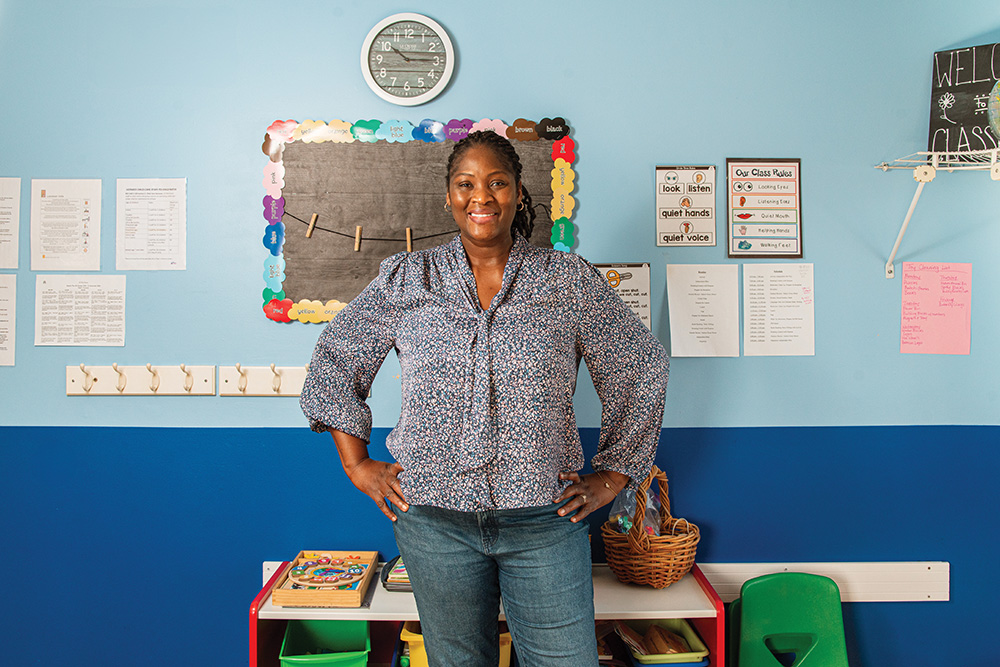
When Mouna Konate was 4 years old, her father made the difficult decision to leave his family to seek opportunity in the U.S. He taught high school German in their home country of Mali in West Africa, but the former French colony’s future was uncertain. “Things were not going well in Mali with the government, teachers weren’t getting paid, and the pay was not great,” she says. “They were going three or four months waiting for their salary.”
Her father heard of a program that enabled educated professionals to learn English and study for graduate degrees in the U.S. He was accepted, learned the language, and enrolled in a master’s program at University of Southern California. That led to a job with the U.S. Agency for International Development and a return to Mali, which enabled him to buy a modest home and bring stability to the family. “It changed our lives,” says Konate.
His experience was so profound that he offered his daughter the opportunity to attend college in the U.S. Based on a family friend’s recommendation, she chose Michigan, enrolling at a community college in Lansing and then Central Michigan University. That led to marriage and moves to Ohio and Northern Kentucky, where she worked for Gap Inc. and then Amazon, rising to middle management. After years of ascending through the corporate ranks, Konate felt called to pursue her passion: working with children.
“People always tell me how patient I am with kids, and my friends tell me that their own kids always want to have a conversation with me,” she says. “I love to see them develop. It’s just amazing to me.”
After much thought and prayer, about two years ago Konate began laying the groundwork to open a daycare center, getting the necessary credentials, learning about the economics of owning a small business, and working with a Realtor to find a location, putting the project management skills she employed at Amazon to work on her passion project. She prepared herself to go without income for a year while she worked through the process.
In December 2024, Konate opened JJ’s Playhouse Child Care and Learning Center in Hebron, named after her father, Jacob, and her father-in-law, John. The center provides day care, before- and after- school care, and full-time child care for children six weeks old to age 5. “I want every kid to feel welcome,” she says. “Kids are kids, and they need to be loved regardless of what’s going on at home.”
Konate hopes her success in the corporate world and as an entrepreneur is a model for others. “It’s important for other immigrants to see, Oh, she’s been able to do this, so I can do it too. I can do something great. I can go after my dream.”
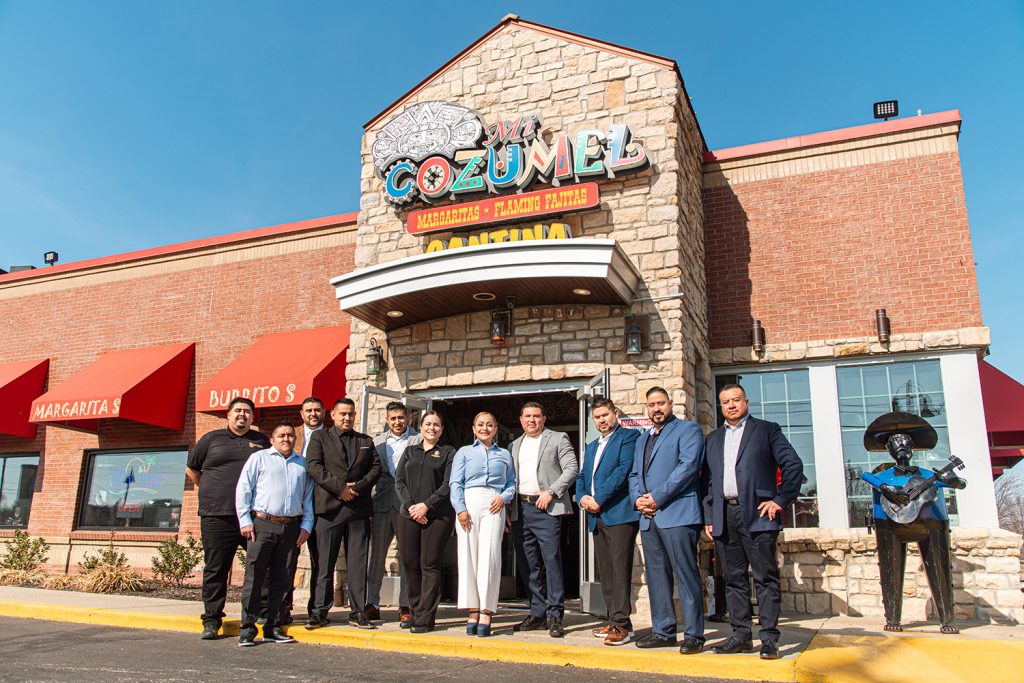
Originally from the state of Guanajuato, 200 miles northwest of Mexico City, Diana Jaime and her sisters made their way to Cincinnati via Minnesota and Chicago, eventually launching the popular, growing family-owned restaurant chain Mi Cozumel.
They discovered Cincinnati by visiting a friend of their mother’s and decided to move here from Chicago. Jaime’s sister, Liliana, opened the first Mi Cozumel in Tri-County Mall in 2018. With its colorful wall murals depicting life in Mexico, the glassware and plates made by artisans in Mexico, 40 different kinds of margaritas, and tables and chairs made from tequila barrels, the restaurant quickly became a destination. “We are completely different,” says Jaime, the company’s operations manager and marketing director. “We offer a whole experience. At the beginning, we were a little afraid that this would be a little bit too much for people, but we said, Let’s try it, let’s see what happens, let’s get crazy about it.”
The crazy worked. COVID’s emergence in early 2020 created tough times for many restaurants, as business changed dramatically almost overnight. The Mi Cozumel team saw an opportunity when the state permitted sales of to-go alcohol. “That was a game changer,” Jaime says. “We thought, This is a very tough time where we all are feeling isolated, alone, away from our families, what if we made it fun?” They served to-go margaritas in colorful, themed cups, with customers choosing from a variety of drink colors and designs. “You were able to pick four or five, even 10 flavors, and suddenly we had a twohour line outside of the restaurant waiting for our drinks,” she says.
With word spreading about the lively new restaurant, Mi Cozumel opened a second location in Finneytown in 2021. Jaime and her sisters and family traveled to Mexico searching for ideas. “We tried to put together a menu where we integrate flavors but at the same time teach the community about our culture,” she says. “Our promise was that whenever you enter our restaurant you’re immersed in this world where you’re in Mexico. This is color. This is life. This is dancing. This is singing. This is feeling alive.”
Two more locations followed in Oakley and in Lebanon, and the family has continued to invest in expanding the business. Four more restauarants are on the way: downtown across from Fountain Square as well as in Kenwood, Florence, and Dayton, Ohio.
Jaime says the business philosophy remains simple. “We work hard, and we want to create a good community and good opportunities.”
